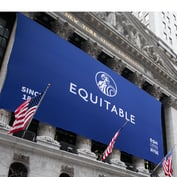By
The terrorist attacks of Sept. 11, 2001 were still casting their shadow on the business in 2002, some producers say.
“There was a deferred impact of 9-11,” says Guy Baker, managing director of BMI Consulting in Newport Beach, Calif. The impact on his business was a mid-summer lull in production. “The cash flow from deals I would have started during the last quarter of 2001 didnt really start hitting until June or July,” he says.
For his prospects, as for those of many producers, it was anywhere between February to April before they were ready to talk about financial planning again.
“9-11 hit, but that didnt stop a lot of the business that was already in the process,” Baker continues. “2002 started out as a really good year, but then it went flat. Now, its picked up again.”
This type of inactivity can drive a rookie producer out of the business, says Charles A. Brewster Jr., a planner from Osterville, Mass. “If you were just in the commission business, you were in trouble for the last few quarters. People are just now starting to be a little more open to making decisions on their financial planning and investments.”
But now that many people are ready to sit down and plan for their future, they are faced with the confusion brought about by the Economic Growth and Tax Relief Reconciliation Act (EGTRRA) of 2001. Under this law, the federal estate tax is gradually phased out, with repeal taking place in 2010. Then, under a “sunset” provision written into the law, the estate tax reappears a year later in 2011.
The result is that some agents have seen drops in insurance sales for the purpose of estate taxes. “There doesnt seem to be a sense of urgency from the publics perspective to do much life insurance planning for their estates,” says William Gettings, a partner with Gettings Reed Financial Services, Lafayette, Ind.
“That has really put a stop on the estate planning process–as far as funding estate taxes with life insurance,” says Brewster.
This is particularly the case with smaller estate owners, those in the $2 million to $5 million range, says Baker.
But Robert A. Kaiser, of Kaiser Financial, Fanwood, N.J., says he has not seen any drop in production. “No one believes that estate taxes are going away, and theyre proceeding full speed ahead.”
Most insurance professionals speculate that with federal defense spending levels where they currently are, estate taxes are sure to be a source of revenue for the government. But even so, many planners are hitting roadblocks when trying to plan for their clients estate taxes.
Other advisors, such as CPAs and attorneys, feel that their clients have to plan based on todays current law, rather than speculate on what changes may take place.








 December 29, 2002 at 07:00 PM
December 29, 2002 at 07:00 PM









